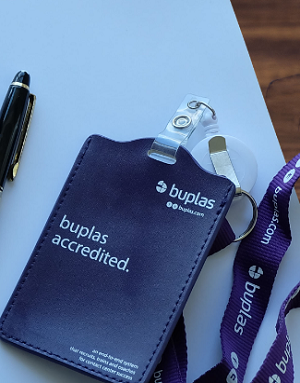 With English now being spoken as a second language primarily for business communication, global companies have a vested interest in how it is assessed and what it measures. Questions related to the ownership, the content and the administration of business communications assessments are contesting the traditional practices of large scale ‘language testing’ practices where only TESOL trained language testers rate candidates on a per head cost basis.
With English now being spoken as a second language primarily for business communication, global companies have a vested interest in how it is assessed and what it measures. Questions related to the ownership, the content and the administration of business communications assessments are contesting the traditional practices of large scale ‘language testing’ practices where only TESOL trained language testers rate candidates on a per head cost basis.
BUPLAS has been developed specifically for global business communication based on:
- ‘best practices’ of language communication assessment
- strong relevant theoretical applied linguistic and business management principles
- ‘knowledge transfer’ processes into companies; and
- a pricing model that is tailored to the level of company use and licensed into the company.
The special characteristics of BUPLAS are described under the headings of validity, reliability and practicality.
- Validity refers to why a particular communications assessment tool and set of processes is ‘fit for purpose’ . In this case business communication.
- Reliability refers to how a particular communications assessment tool and processes yield reliable and systematic scores that relate to the level of performance required.
- Practicality refers to what resources are required in terms of time, cost and manpower to ensure quality assessment practice.
These three principles underpin the quality of communications assessment and should any one of them be compromised, the assessment tools and processes are compromised. This is why checks on these principles are key when sourcing quality assessments.
1. Why is BUPLAS valid?
BUPLAS is valid because is it has both test validity and business context validity.
1.1. BUPLAS test validity. This relates to the BUPLAS assessment tasks and assessment tools (i.e the bUPLAS rubric for spoken , written and web-chat) and includes:
BUPLAS assessment tasks. BUPLAS tasks at recruitment, training and coaching on the job relate directly to the kind of communication required of customer service representatives working on contact centres. For example, assessment tasks include a range of activities such as simulated roleplays for voice exchange. BUPLAS also uses authentic recorded exchanges for quality assurance measurement for appraisal and coaching purposes.
BUPLAS assessment tools. BUPLAS rubrics have been developed with relevant criteria based on applied linguistic research into what constitutes communicative competence (Canale and Swain, 1980; Halliday & Matthiessen, 2004).The criteria comprise more than just an ability to use vocabulary and grammar and probe an ability to interact with business settings and explain products and processes clearly with a good globally comprehensible pronunciation.BUPLAS also has a set of delicate levels, expressed in .5s, that relate to the kind of communications performance expected at recruitment and on the job.
1.2. BUPLAS business context validity. This relates to the business context for the assessment and the business expectation that the assessment will impact the business/ work. This includes:
Proven business key performance indicators of the CSR’s work and how individual assessment level can affect these (e.g. AHT and FTR).
Proven overall workplace performance of how BUPLAS assessment may relate to these (e.g. attrition/retention, CSAT scores).
2. How is BUPLAS reliable?
BUPLAS is reliable because it has both test reliability and assessor reliability.
2.1. BUPLAS test reliability. Each time a screen test is developed for BUPLAS it is piloted and statistically analysed to ensure that the items and the overall level of difficulty is commensurate with the performance communication needs of the company.
2.2. BUPLAS assessor reliability. As part of the ‘knowledge transfer’of BUPLAS into businesses through a licensing arrangement, all BUPLAS assessors are trained, calibrated and moderated in an on-going way. This is important for the maintenance of quality standards of rating.This assessor reliability and expertise also means that quality coaching and feedback will be comprehensive and informed resulting in business improvements.
3. What makes BUPLAS practical?
BUPLAS is practical because it has been designed with the needs of the business in mind. Unlike traditional spoken assessments is does not rely on outside experts to do the assessments, it does not bill on a per head basis and it does not just provide an overall score.
3.1. BUPLAS ‘transfers knowledge and skills’ into the workplace. This means that company employees can be trained and calibrated to assess the spoken and written communication skills of recruitees and workers on the floor. This is achieved through certified training and on-going calibration.
3.2. BUPLAS has a unique business model. Through a licensing arrangement, businesses can be trained and calibrated to use BUPLAS and receive upgrades and on-going support as they assess for communication skills.
3.3. Given the key importance of communication skills, BUPLAS provide both holistic and analytical scores that businesses can then use for a variety of purposes including tagging accounts, appraising staff and providing coaching solutions based on need.
Want to learn more how BUPLAS can help your business? Schedule a demo now with one of Future Perfect’s specialists.

